Les Misérables: The man behind the new BBC adaptation
- Published
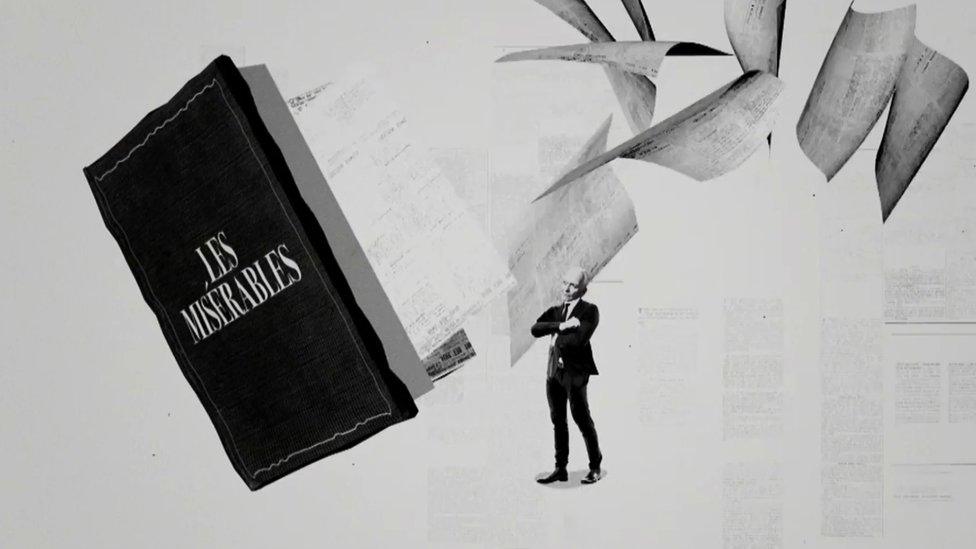
Andrew Davies had turned his hand to an adaptation of Victor Hugo's Les Misérables
He's the man behind such TV gems as Pride and Prejudice and War and Peace - as well as the first two Bridget Jones movies.
Andrew Davies' latest offering - a six-part dramatisation of Victor Hugo's 19th century classic Les Misérables - is airing from 30 December and adds another gem to an already glittering CV.
In a half-century long career, the Cardiff-born writer has penned well over 100 works across TV, radio, film, stage and print.
But despite picking up plenty of plaudits, along with Emmys and Baftas, for his work, the 82-year-old credits his hometown and a teaching career for helping in his success.
"At school I suppose I was quite a naughty boy; always in detention, and I'd like to think I've carried a lot of that mischief into my writing," he says with a smile.
"It's a screenwriter's job to play with the audience's expectations and sow seeds in their mind."
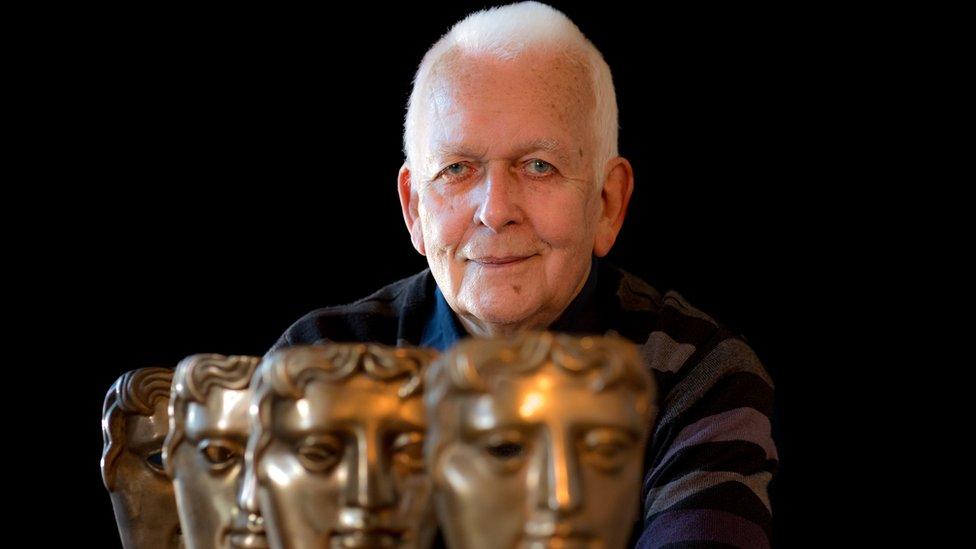
Davies has won several awards including Baftas and Emmys
The former Whitchurch Grammar School boy, whose life is the subject of new BBC Wales documentary Andrew Davies: Rewriting the Classics, said he also thinks about his old home in Rhiwbina.
"I hadn't been back to our family home since my father died, but when I dream it's that house I'm seeing in my mind's eye. It's often the setting for many of my creations in their embryonic stages.
"We'd sit around the kitchen table and encourage each other to create stories about our day.
"Embellishing them with our imagination was always far more important than sticking strictly to what had actually happened."
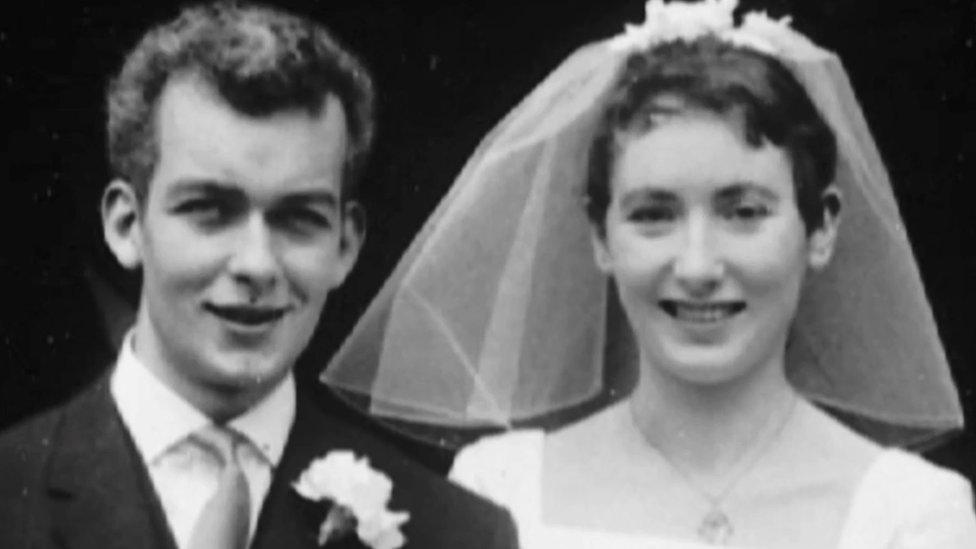
Davies, who tied the knot with wife Diana in 1960, did not own a television until he was in his 20s
Davies left Cardiff aged 18 to study at University College London. After graduating he taught at two London schools before becoming a lecturer in English literature at Warwick University.
"I've always been a keen observer of people, and through teaching I learnt a lot about human nature and interaction, which is just as well, as I don't think I'm actually that good at writing plotlines.
"I'm much more interested in how people would react and what they'd say to each other."
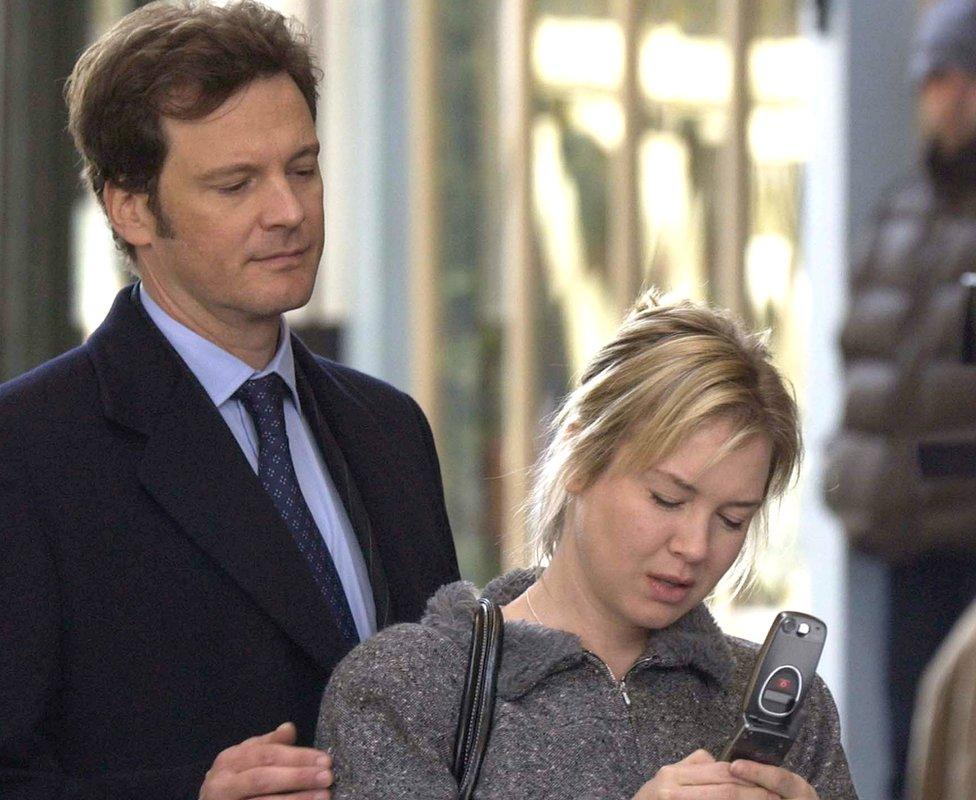
Davies contributed to two of the Bridget Jones Diary films
He says his observational traits help him "re-imagine" characters when working big and small screen adaptations of novels such as Tipping the Velvet and Vanity Fair.
However, he most enjoys working on original ideas such as the 1980s surreal comedy drama A Very Peculiar Practice.
"Taking your own character, from the glint of an idea in the recesses of your mind to coming alive before your eyes on the screen, is the closest thing I can imagine to giving birth," he says.
"Although it can then be quite difficult to hand it over to the actors and production team to develop further."
His family also help inspire him to move away from the world he knows.
"I especially love creating challenging female leads, he says, claiming there is something "very liberating and escapist" about an 80-plus-year-old man being able to place himself in the mind of a woman in her 20s or 30s.
"My own mother was quite an interesting woman and I think I explore a lot of her mindset in my leading ladies."
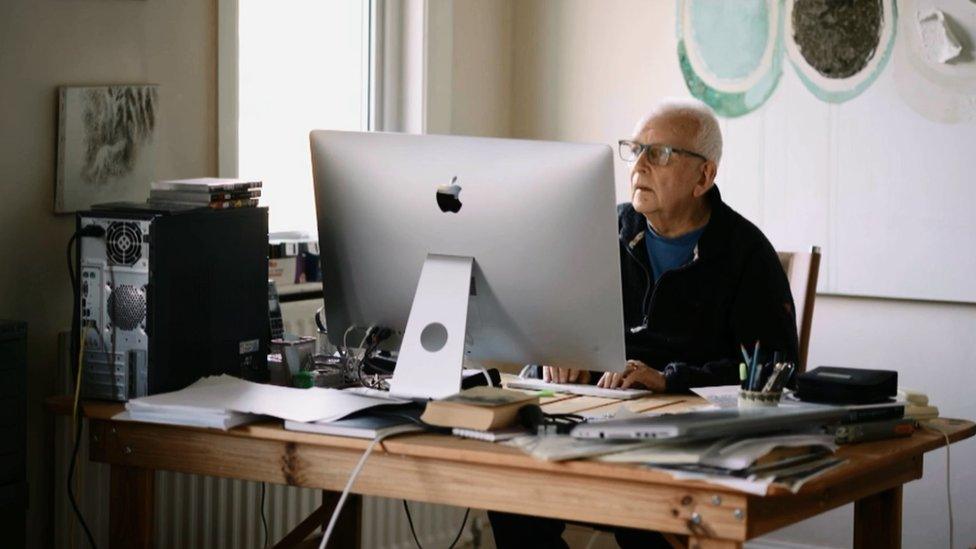
Not tech-ing it easy: Andrew Davies is working on two new commissions for the BBC
Despite his octogenarian status, the father of two has no intention of slowing down.
"I've had two new hips this year and I'm feeling younger than ever," he says with a glint in his eye.
"I think it's about having something you believe in; something which excites you. You need that force to maintain your desire to carry on living and working."
Les Misérables is on BBC One from 21:00 GMT, 30 December and can also be seen on BBC iPlayer. Andrew Davies: Rewriting the Classics can be seen an hour later on BBC Two Wales at 22:00, and on BBC Four at 22:05 GMT.